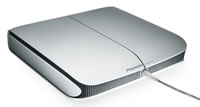A new OECD report urges governments to use competition rather than subsidies to promote the growth of broadband in remote areas. Subsidising national operators to roll out broadband in these areas reduces competition and innovation, and may mean that subscribers get stuck with an expensive, yet poor quality, service.
The OECD report, The Development of Broadband Access in Rural and Remote Areas, claims that the arrival of new start-up companies offering wireless broadband at low prices is causing established telecoms companies to speed up their broadband delivery process and cut prices. Indeed, this has already been seen in the UK to an extent, with BT’s suddenly rapid exchange upgrades and dramatic cuts to broadband subscriptions and local loop unbundling.
The number of broadband subscribers in OECD countries is expected to reach 100 million by Q3 2004, up from 82 million at the end of 2004 and 56 million at the end of 2003. Broadband penetration now extends to 75% of OECD household, with 1 in 4 already enjoying a service.
However, the report details that availability will continue to vary widely for at least the next few years:
- Over 90% of households in Belgium, Denmark, Japan, Korea, Luxembourg, Spain, Switzerland and the United Kingdom can connect to broadband services. Other countries expected to join this group by the end of 2004 include Finland, France and Germany.
- Countries with larger geographical areas such as Australia, Canada, and the United States are likely to have DSL coverage of between 80% and 90% over the next few years. In Canada and the US, broadband via cable modem already reaches 85% and 80% of households respectively.
- A number of countries– such as the Czech Republic, Greece, Hungary, and Ireland – have only recently launched broadband services.
 Video Networks have launched the latest iteration of their HomeChoice service, available in the UK from 1st June.
Video Networks have launched the latest iteration of their HomeChoice service, available in the UK from 1st June. We have covered the on/off, is it real, is it vapour history of the Phantom Console a number of times.
We have covered the on/off, is it real, is it vapour history of the Phantom Console a number of times. Phantom Lapboard, which they claim gives easy control over the keyboard and mouse even when sitting on a couch.
Phantom Lapboard, which they claim gives easy control over the keyboard and mouse even when sitting on a couch.